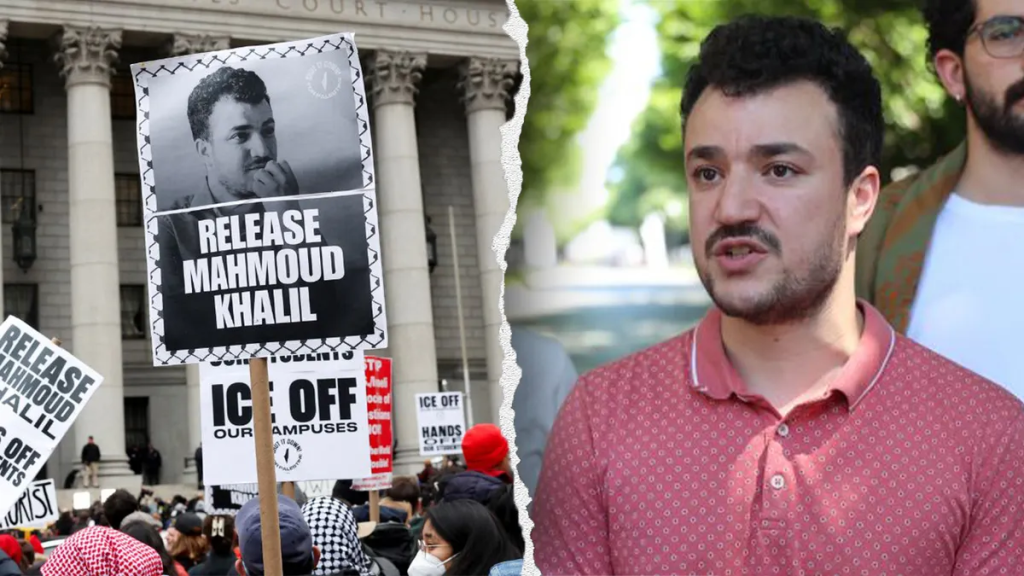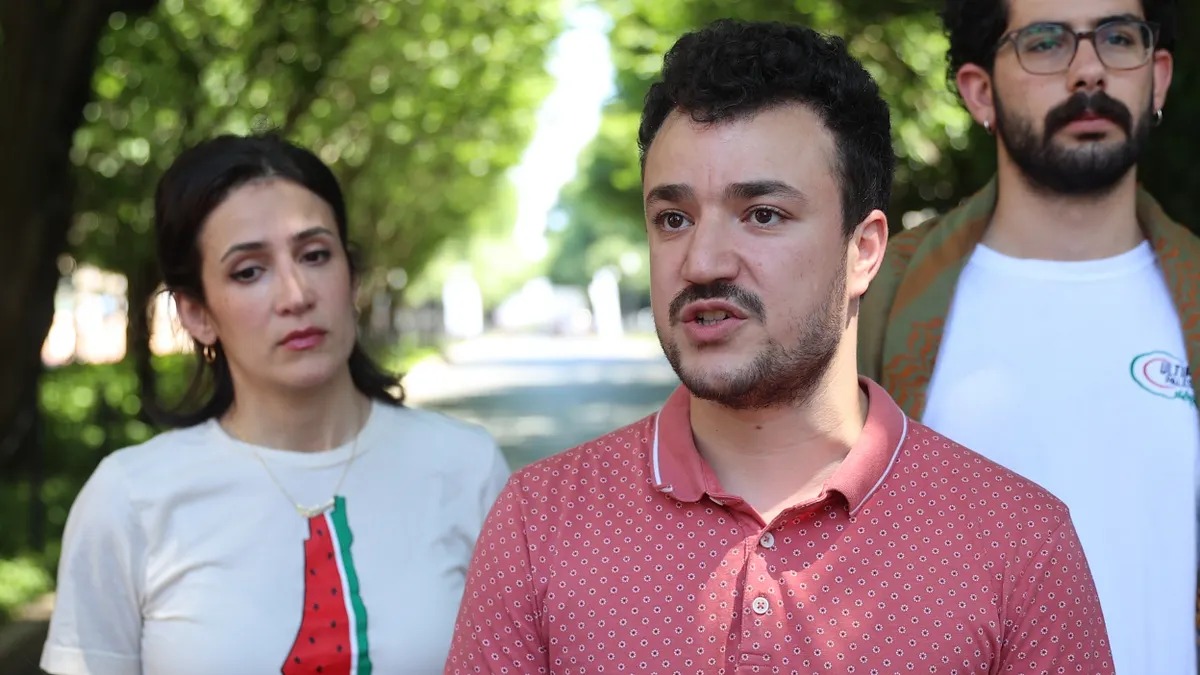Mahmoud Khalil, a Columbia University graduate student and prominent pro-Palestinian activist, is currently embroiled in a high-profile deportation case. The U.S. government has initiated removal proceedings against him, citing a rarely used statute from the Immigration and Nationality Act of 1952.
His case has sparked national debate, with civil rights advocates warning of potential free speech violations. Khalil, a lawful U.S. resident married to an American citizen, is now fighting to stay in the country as his attorneys argue that his deportation is politically motivated.
Background of the Case
On March 8, 2025, Khalil was arrested at his university-owned apartment in New York and subsequently transferred to the LaSalle Detention Center in Louisiana. The Trump administration has invoked a provision that allows deportation if an individual’s presence in the U.S. is deemed harmful to foreign policy interests.
Authorities argue that Khalil’s active participation in campus protests against Israel has led to diplomatic concerns. However, his supporters see his arrest and potential deportation as a clear violation of his First Amendment rights.
The rarely used provision of the 1952 immigration law was originally designed to prevent individuals suspected of communism from remaining in the U.S. Today, its application in Khalil’s case has raised serious questions about its continued relevance and fairness in a modern democratic society.
Legal experts note that using Cold War-era laws to silence political activists sets a dangerous precedent and could affect future generations of protesters.
Legal Battle and Court Proceedings
Khalil’s attorneys appeared before a federal judge in Newark, New Jersey, to challenge the jurisdiction of the case and demand his immediate release. They argue that his detention is a form of political retaliation and that he has not been charged with any crime.
The legal team is challenging the use of the 1952 statute, which has been historically linked to McCarthy-era policies used to suppress dissenting voices.
In court documents, Khalil’s legal team has emphasized that his political activism is protected under the First Amendment. They have cited past cases in which deportations based on political activities were overturned, arguing that the government is selectively targeting activists who challenge U.S. foreign policy.
Immigration law experts agree that the case is significant, as it could redefine how immigration enforcement intersects with free speech protections.
First Amendment and Free Speech Implications
Legal experts and civil liberties organizations are closely monitoring Khalil’s case, as it could set a precedent for how the U.S. government treats activists engaged in political speech.
The American Civil Liberties Union (ACLU) and other advocacy groups argue that using immigration law to target political activists undermines democratic values. They stress that Khalil’s activism does not constitute criminal behavior and should not be grounds for deportation.
Critics of the deportation proceedings have also pointed out that foreign nationals have historically played an important role in U.S. activism. Many civil rights movements have benefited from the participation of international students and residents, making Khalil’s case particularly relevant to ongoing discussions about political speech protections.
If his deportation is allowed to proceed, it could discourage future activists from engaging in peaceful demonstrations.

Similar Cases and Government Crackdown on Pro-Palestinian Activists
Khalil’s case is not an isolated incident. Recently, Rumeysa Ozturk, a Turkish doctoral student at Tufts University, was arrested and placed in a Louisiana detention center over alleged ties to Hamas, a claim that her associates dispute.
Additionally, Yunseo Chung, another Columbia University student, faces deportation proceedings linked to a misdemeanor charge from a protest arrest. The increasing number of deportation cases against pro-Palestinian activists has raised concerns about the government’s approach to dissenting political voices.
These cases indicate a broader trend in which immigration enforcement is being used to suppress political activism, particularly regarding the Israel-Palestine conflict.
Human rights organizations argue that such actions undermine the principles of free expression and academic freedom, which have historically been protected in the U.S. university system. Some activists fear that this crackdown could extend to other politically engaged students in the future.
Public and Political Reactions
Khalil’s case has drawn national attention, sparking protests and statements from politicians and activists. Some Democratic lawmakers have called for a review of the use of immigration laws to suppress political speech.
Meanwhile, conservative figures argue that individuals engaging in activities that could disrupt foreign policy should face legal consequences. The case has intensified the debate over the balance between national security and constitutional rights.
Public opinion on the issue remains divided. While many Americans believe in the right to protest, others argue that foreign nationals should not be allowed to engage in political activism that contradicts U.S. policy. The media coverage of Khalil’s case has further fueled discussions on whether immigration enforcement should be used as a tool to regulate political expression.
What’s Next for Mahmoud Khalil?
As Khalil continues to fight his deportation, his legal team is working to gather public support and highlight the constitutional implications of his case. If deported, he could face significant challenges in his home country, including potential restrictions on his ability to travel or further his academic career. The final decision will likely depend on court rulings and public pressure.
Legal analysts suggest that Khalil’s best chance at remaining in the U.S. lies in a successful appeal to the federal courts. If the lower court rules against him, his attorneys are expected to escalate the case to higher judicial levels, potentially reaching the Supreme Court.
Given the politically charged nature of the case, any ruling could have far-reaching consequences for future immigration policies and free speech protections.
Conclusion
Mahmoud Khalil’s deportation case highlights a critical intersection between immigration law, free speech, and political activism. As his legal battle unfolds, it remains to be seen how the courts will balance national security concerns with the constitutional rights of individuals residing in the U.S.
This case has the potential to set a precedent for how similar situations are handled in the future, making it a pivotal moment in American legal and political history.
For more updates on Khalil’s case, visit AP News.
Disclaimer – Our team has carefully fact-checked this article to make sure it’s accurate and free from any misinformation. We’re dedicated to keeping our content honest and reliable for our readers.
